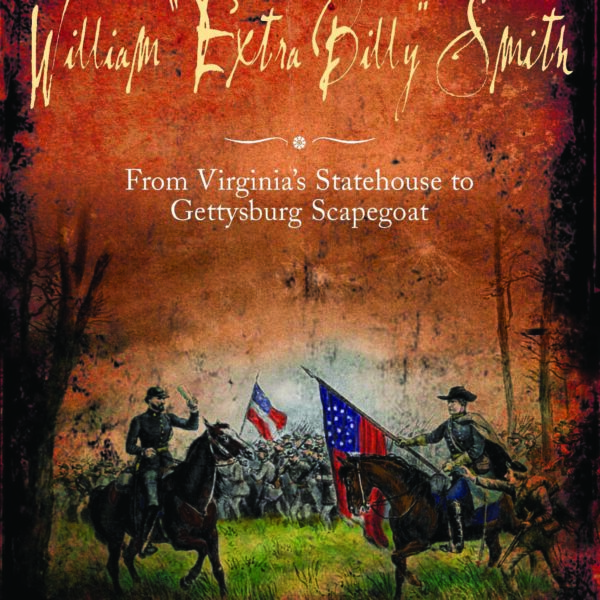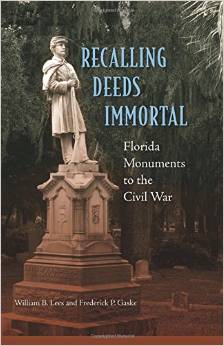Reconstruction is often depicted as a political and policy battle between “Presidential Reconstruction,” led by President Andrew Johnson and “Congressional Reconstruction,” advocated by Radical Republicans in the United States Congress. Yet far away from debates in the national capital, former Confederates and loyal Unionists lived Reconstruction. In her new book examining pardon applications from Tennessee, Kathleen Zebley Liulevicius reclaims the confusion, chaos, and improvisation that occurred in Southern communities during the Civil War’s immediate aftermath. “The war had been a people’s war,” she writes, “and the peace would have to grow organically in the communities that had been so divided” (4).
Historians have been working tirelessly to recover and recreate the past as experienced by “normal” or “average” Americans. This project has complicated and enhanced the ways we tell our national stories. Liulevicius stands at the forefront of scholars who are bringing this focus to the Reconstruction period. By examining Tennessee pardon applications addressed to President Johnson, Liulevicius captures how the “pardoning of former Confederates was a communal process with neighbors, acquaintances, and each state’s governor urging or discouraging President Johnson’s clemency” (4). By her own admission, Rebel Salvation does not deal with President Andrew Johnson and policies created in Washington, D.C. “Instead,” the author writes, “it offers a view of how Reconstruction was experienced in the state of Tennessee by the people who were living under the policies” (15).
President Lincoln began the pardon process in Tennessee after the state was taken over by the Union army. Understanding the ways nineteenth-century Americans were attached to local self-government, Lincoln “tailored his policies to appeal” to these “republican sentiments” and emphasized “his limited goals in the war and his dedication to empowering local, loyal citizens to restore pro-Union government in their states” (38). Johnson, after Lincoln’s death, followed this policy, but stipulated fourteen classes of former Confederates who had to apply specifically to the president for a pardon. Significantly, pardon requests had to include an oath of allegiance. “Nineteenth-century Americans emphasized the inviolability of the oath,” and the granted pardon had to be accepted in writing, by which “one admitted to wrongdoing” (45). What was not required as part of the pardon process were letters of recommendation from neighbors and community leaders. Instead, the inclusion of these endorsements in pardon applications shows that “Reconstruction began at the community and county stage and percolated up to the state and national level as a broad process” (46).
Chapters three through eight examine the pardon applications of Confederates within the exempted classes. Liulevicius supplies a brief overview of the pardon cases. The application process itself reveals much about how local Confederates contemplated their failed experiment immediately after the war. Frequently, they shifted blame elsewhere. Pardon applicants who were political leaders pointed out that they had not been in the field carrying out war against the United States; all the same, the military officers among the applicants emphasized that their orders and directives came from politicians. Local leaders claimed that their work was so mundane and ordinary that it hardly affected the overall working of the rebellion (7). Overall, “many wanted to underscore that they had no role in igniting the rebellion, and they were eager to demonstrate that they had banished all ideas of continuing the fight for Southern independence now that the Confederacy was defeated” (115). This reasoning shows that, across the South, there was a belief that “some men were more guilty than others; there were gradations of culpability, at least in the minds of petitioners” (7).
Despite her focus on the local level, Liulevicius’s study does illuminate aspects of the “top-down” workings of Reconstruction policy. President Johnson believed himself to be a “man of the people” and blamed Southern elites for forcing secession on a largely indifferent population (48). Traditional historiography claims that Johnson required oaths of allegiances from elite Southerners as a type of psychological retribution for their victimization of poor whites. Instead, Liulevicius argues that Johnson’s favoring of oaths stemmed from his theory of secession. States did not secede, according to Johnson’s logic; therefore, individual Southerners had committed treason. It followed that individual Southerners would then swear an oath to apply for a pardon. “This action would vindicate his constitutional concept. To acknowledge wrong was also an acknowledgment of the Union’s legitimacy” (51). For most applicants, Johnson moved quickly, but he “reserved judgment and delayed issuing pardons to those men he deemed particular instigators or perpetuators of the rebellion, namely, the high-ranking military and civilian officers” (256).
Applying for pardons was a period of immense anxiety for Southerners. Without a pardon, an individual could not own land, vote, or hold elected office. A helpful and detailed appendix is included which lists each pardon applicant addressed in the book and the outcome of the application.
Liulevicius purposefully uses the word salvation in her title, for it “reflects the impatience petitioners felt to be forgiven and delivered from wracking uncertainty” (14). Yet the author does not explore religious aspects of applicants’ pardon petitions in any depth. This is a curious omission, given Liulevicius’s acknowledgment of salvation’s religious connotations.
Nonetheless, Rebel Salvation is an important contribution to our understanding of the contested notions of peace that developed across the South in the wake of the Civil War. The author offers a powerful reminder that by making in-the-moment decisions in view of their own circumstances, people on the ground determine the course of history.
Caleb W. Southern received an MA in History at Sam Houston State University. He serves as the Director of Retention at Southern Wesleyan University.





